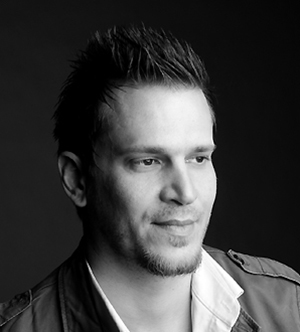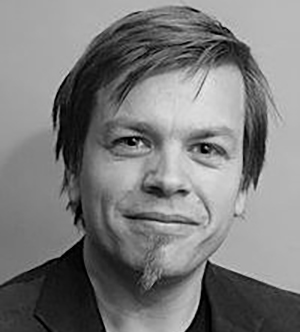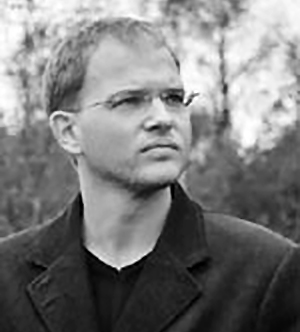 Due to the impacts of postmodernism, social and cultural anthropology has been dealing intensively with the possibilities and limits of representing “other” human beings and their meaningful worlds. So far, the discipline has discussed ways of improving its methods of representation without, however, fully raising questions about the quality and validity of the objects represented and the very idea, that they could be “represented”. Thus, despite attempts to purify classical anthropological categories, substantialized identities (“Humans”, “Others”, “Pygmies” etc.) along with various forms of binary oppositions (us – them, culture – nature, human – animal, fact – representation) have been rehearsed. The project aims to dissect and challenge the metaphysical outputs of the “anthropological machine” (Giorgio Agamben).
Due to the impacts of postmodernism, social and cultural anthropology has been dealing intensively with the possibilities and limits of representing “other” human beings and their meaningful worlds. So far, the discipline has discussed ways of improving its methods of representation without, however, fully raising questions about the quality and validity of the objects represented and the very idea, that they could be “represented”. Thus, despite attempts to purify classical anthropological categories, substantialized identities (“Humans”, “Others”, “Pygmies” etc.) along with various forms of binary oppositions (us – them, culture – nature, human – animal, fact – representation) have been rehearsed. The project aims to dissect and challenge the metaphysical outputs of the “anthropological machine” (Giorgio Agamben).
Monatsarchiv für December 2011
 In media studies it is often argued that the emergence of new media inevitably leads to anxieties among devotees of old media who suspect that these media become irrelevant: photography menaces painting, film executes photography, tv menaces film, and the Internet finishes everything else. The printed book is no exception from this logic. Long before the invention of ebooks and Open access, various prophets predicted the decline of the Gutenberg Galaxis. Even without subscribing to such apocalyptic visions, we can not overlook the fact that the humanistic book has come under pressure. Being the unquestioned and primordial scientific medium in the 20th century, an assembly of habituations and practices has shifted within a few years. That implies institutions of advanced studies, publishers, research communities and the scholars themselves. The question, thus, is: Which role will the printed book play within and without the humanities?
In media studies it is often argued that the emergence of new media inevitably leads to anxieties among devotees of old media who suspect that these media become irrelevant: photography menaces painting, film executes photography, tv menaces film, and the Internet finishes everything else. The printed book is no exception from this logic. Long before the invention of ebooks and Open access, various prophets predicted the decline of the Gutenberg Galaxis. Even without subscribing to such apocalyptic visions, we can not overlook the fact that the humanistic book has come under pressure. Being the unquestioned and primordial scientific medium in the 20th century, an assembly of habituations and practices has shifted within a few years. That implies institutions of advanced studies, publishers, research communities and the scholars themselves. The question, thus, is: Which role will the printed book play within and without the humanities?
Dear participants
We are very much looking forward to meeting you at Schloss Münchenwiler in January! Meanwhile, we offer you blog space to get to know each other in advance. This blog is meant to connect participants before and after the Winter School.
Here you can share information about your research projects as they progress; you can also share information about events that might be of interest to your peers; or, you can raise questions that are currently on your mind. In short, this blog offers a space where TransFormations can be discussed as well as performed.
In that sense: Join us and transform!
Your Winter School Project Team
Prof. Dr. Virginia Richter
Dr. Manuela Rossini
Dr. des. Sabina von Fischer
 Societies and cultures depend on shared knowledge – for instance about different social roles and positions, the norms and behaviour associated with these roles, rights and duties, shared values or a common cultural heritage to name but a few examples. In order to be shared, knowledge on the one hand needs to circulate within a specific group. And on the other hand, of course, knowledge (or bits and pieces thereof) is also constantly exchanged with other such groups – purposefully or not. Hence, knowledge – willingly or not – is constantly on the move.
Societies and cultures depend on shared knowledge – for instance about different social roles and positions, the norms and behaviour associated with these roles, rights and duties, shared values or a common cultural heritage to name but a few examples. In order to be shared, knowledge on the one hand needs to circulate within a specific group. And on the other hand, of course, knowledge (or bits and pieces thereof) is also constantly exchanged with other such groups – purposefully or not. Hence, knowledge – willingly or not – is constantly on the move.
 “A time must come when there will be a science of the future, just like there is a science of the past – and when by virtue of this science the noblest humans calculate for the future as well as for themselves,” writes German philosopher and theologist Johann Gottfried Herder in his 1797 essay On Knowing and Not-Knowing the Future.
“A time must come when there will be a science of the future, just like there is a science of the past – and when by virtue of this science the noblest humans calculate for the future as well as for themselves,” writes German philosopher and theologist Johann Gottfried Herder in his 1797 essay On Knowing and Not-Knowing the Future.
In my talk, I will discuss Herder’s and other concepts of futurity that were advanced around the year 1800. Thereby, an epistemological TransFormation par excellence will be observed – the one to bridge knowledge about the future with a general futurization of knowledge.

